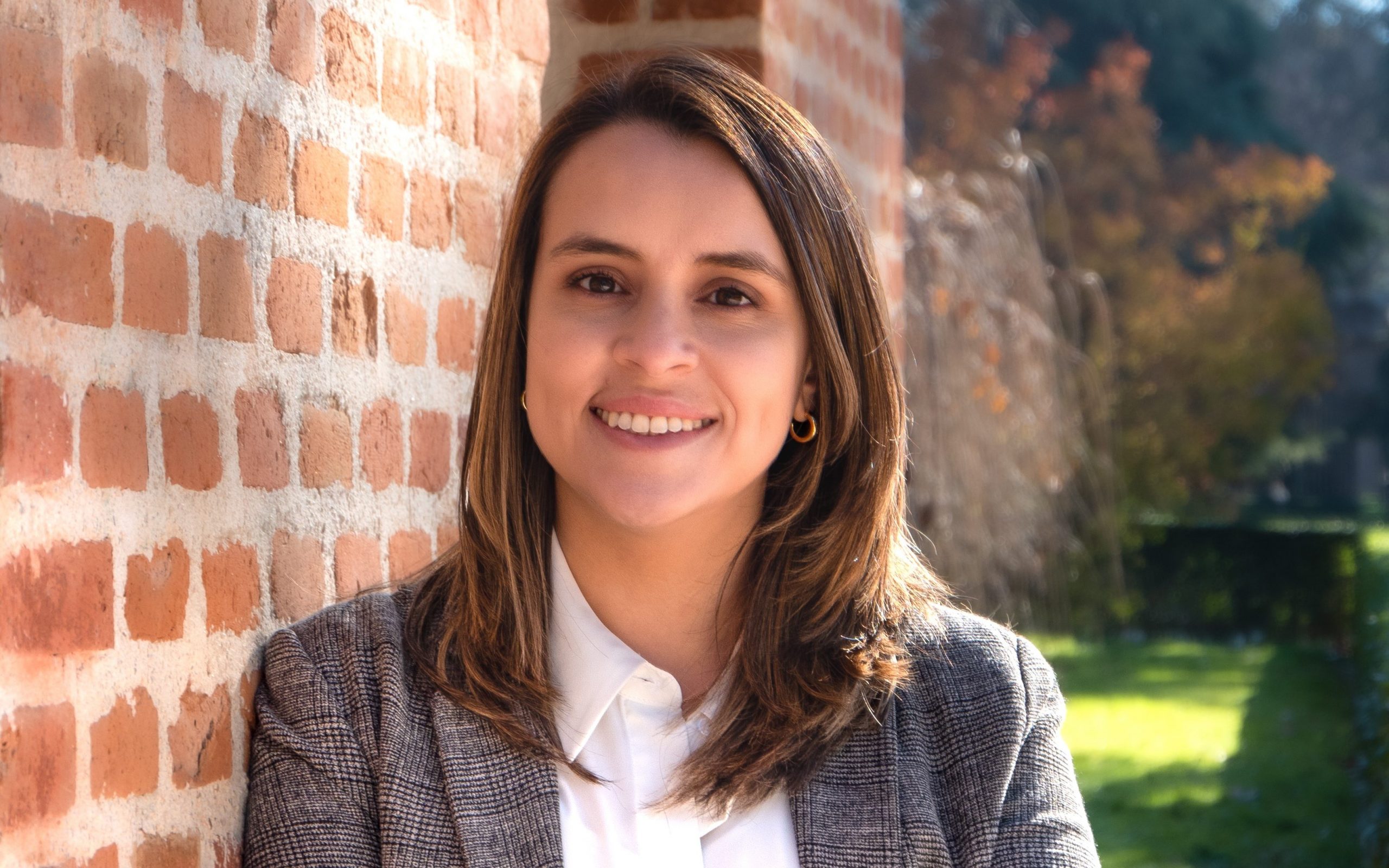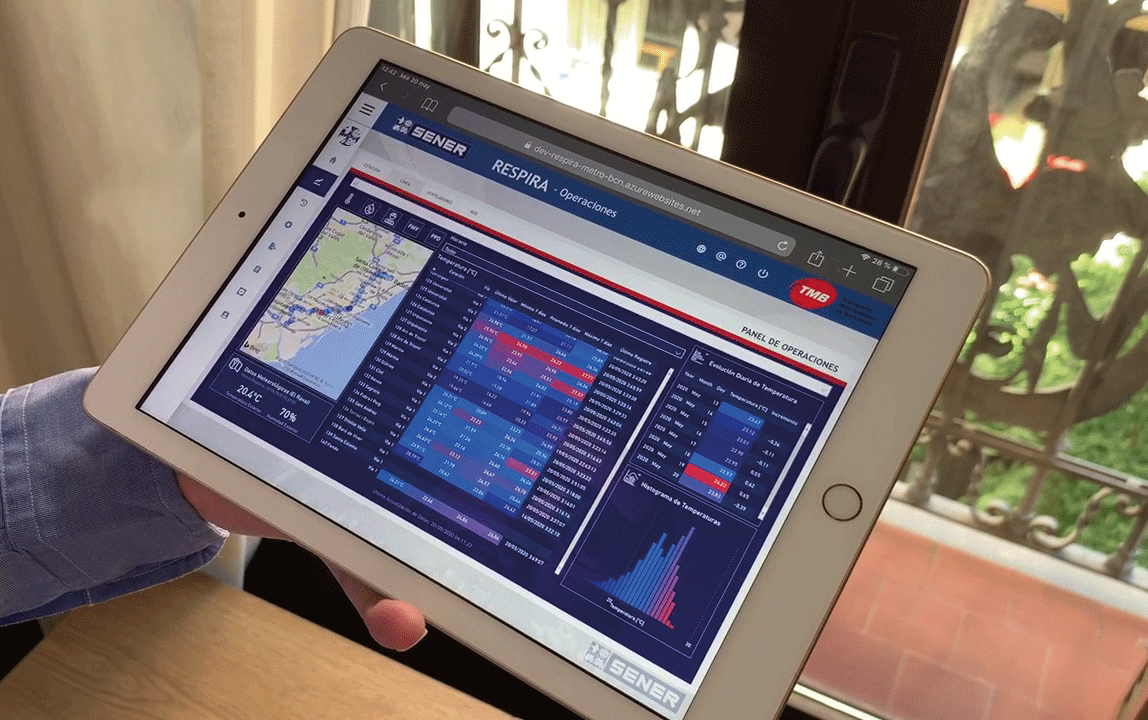
- Equality, diversity and inclusion
Categories:
We spoke with Carolina Montaña, a lawyer with professional training in Compliance, Criminal Law, Sustainability and Judicial Inquiry, and Compliance department Manager at Sener Group, on the occasion of Women’s Day.
What do you think are the key aspects to speed up equality between men and women?
I think that all these topics, which require profound reflections as a society, when taken to your everyday social environment, involve a lot of education, listening and respect for the other’s point of view. We still have a lot to work to do in the area of equality, but you can’t start by distorting someone else’s opinion, by being ignorant of a situation you weren’t witness to, or by having one side impose its criteria on the other; we need to show empathy and respect in order to contribute to the construction of new foundations as a society.
It is important to listen to different criteria on how to approach the achievement of equality, both for men and women, without trying to impose one over the other. You’d be surprised by how often something that is said or thought about, and that harms equality, really isn’t intended that way, or wasn’t viewed as an attack against equality; whether due to ignorance or a lack of understanding.
It’s not a matter of “we women are equal to men”; rather, we all deserve respect in the full sense of the word.
What do you think the biggest challenge for women is right now? What role should society play?
We face different challenges, from individual to collective, from internal to systemic. I believe that we must all realize the importance of full respect for others in an environment of equity, regardless of their gender. That is, of showing others full respect by acknowledging their dignity and value. And the challenge is precisely that, to recognize that it’s not a matter of “we women are equal to men”; rather, we all deserve respect in the full sense of the word. This is why society, with all its members, is responsible for evaluating what actions or thoughts we have that do not allow equity in itself to be possible. Since this process is not intuitive, but is rather part of a collective development process, all of us, through the role we play in society – women, men, companies, institutions, government, etc. – must question and analyze those things we are doing, saying or thinking that are not contributing to that equality or equity.
What are the challenges and opportunities that women face when they reach the professional field?
I think there are two types of challenges. On the one hand is balancing one’s personal and family life with their work life. In this regard, we know of many examples in which a woman’s career advancement has been halted when she became a mother or decided to take care of another person (parents, children, etc.). This is because, statistically, women tend to devote themselves more to these responsibilities than men.
On the other hand is the challenge of growth and development in one’s workplace or profession. Even today, many men, knowingly or unknowingly, discredit or downplay the opinions and work of women. They even delegate to them tasks that require effort, but that are not reflected in any evaluation, such as typical meeting minutes, archiving documents or calls. This is evidenced in concepts such as the glass ceiling or the wage gap, which are a reality in many scenarios, if only informally, but still as an underlying issue.
And as an opportunity, it’s the chance to be heard in contexts where we haven’t been heard or didn’t have the chance before, since these kinds of discussions or topics have allowed these debates to shift to the cafeteria table, to the execution of a project, and even to performance reviews. Is it difficult? One hundred percent. But it’s also true that it’s more possible now than it used to be.
Young people must prepare themselves for the challenges that society is imposing on us as social beings and that is to build true interpersonal relationships.
As for your story, what attracted you to your profession? In what areas would you like to keep advancing, what challenges have you set for yourself?
I never considered a career in Compliance. In fact, a few years ago that concept didn’t even exist. My story began in the field of criminal inquiry and defending companies in criminal cases as a lawyer. There I saw a great opportunity for personal and professional growth, not only in investigating or prosecuting violations, but also in prevention through systematization and education in the corporate field.
I think this profession will allow me to continue growing at the pace and dynamics of society as a whole. For example, issues such as human rights, integrity and sustainability are now necessities where Compliance has a lot to offer. My challenges will reflect the challenges that society demands from companies.
Finally, what advice would you give to a teenage girl or young woman who is starting her career? A woman who inspired you?
I think the same I would give to a teenager or young person, which is to be prepared. Not prepared in the academic sense, that’s a given; but to be prepared for the challenges that society is imposing on us as social beings, which are to build true interpersonal relationships (people can follow you on Social Media without knowing you!), listen to and respect the opinion of others, don’t take everything personally, think of others and of the group through your professional contributions. I hope that coming generations will be much more aware of the issues of equality, fairness and discrimination; and I think that comes from having men and women who were raised equally. If they have separate upbringings, we can’t expect them to consider and treat one another as equals when they grow up.
And personally, I don’t have one woman who inspired me, I have a lot of them! Starting with my mom, who is the biggest warrior in the world, a berraca as we say in Colombia (someone who stands out for their strength and courage), who was a feminist in her time without knowing that concept even existed; my older sister who, with elegance and strength, does the hardest job in the world, which is to raise three children to bring them into society; and my younger sister, who showed impressive courage in deciding to start in another country from scratch. And then there are my aunts, cousins, friends, teachers, and colleagues who fight in many fields, always with a smile and giving their best.

 About us
About us













